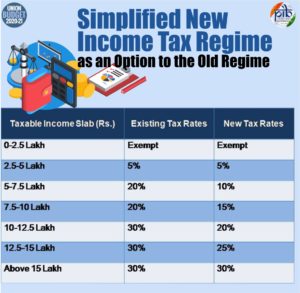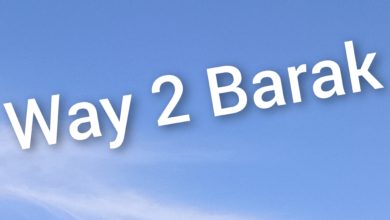India & World UpdatesBreaking News
What will one lose if he/she opt for new tax rate… click to know

February 1: It was jubilation all the way, especially for the salaried class, the moment Finance Minister Nirmala Sitharaman announced that personal income tax regime would be reduced. However, on reading between the lines, the initial joy evaporated as people realised that individuals opting to pay tax under the new lower personal income tax regime will have to forgo almost all tax breaks they were claiming in the current tax structure.
 Essentially, individual tax payers have now have the choice to choose between the two tax regimes depending on their requirements. All deductions under chapter VIA (like section 80C, 80CCC, 80CCD, 80D, 80DD, 80DDB, 80E, 80EE, 80EEA, 80EEB, 80G, 80GG, 80GGA, 80GGC, 80IA, 80-IAB, 80-IAC, 80-IB, 80-IBA, etc) will not be claimable by those opting for the new tax regime. As such, it is not clear as to whether the new personal tax regime will really bring substantial tax savings for most.
Essentially, individual tax payers have now have the choice to choose between the two tax regimes depending on their requirements. All deductions under chapter VIA (like section 80C, 80CCC, 80CCD, 80D, 80DD, 80DDB, 80E, 80EE, 80EEA, 80EEB, 80G, 80GG, 80GGA, 80GGC, 80IA, 80-IAB, 80-IAC, 80-IB, 80-IBA, etc) will not be claimable by those opting for the new tax regime. As such, it is not clear as to whether the new personal tax regime will really bring substantial tax savings for most.
 The Economic Times has prepared a list of the main exemptions that tax payers will have to forgo if they opt for the new regime. A careful study of this list list will enable the tax payers to decide whether to opt for the new reduced tax slab or to continue paying tax as per the earliest rate. Let’s have a glance of the list which would enable us to understand the exemptions which no longer will be available if the new tax regime is adhered to:
The Economic Times has prepared a list of the main exemptions that tax payers will have to forgo if they opt for the new regime. A careful study of this list list will enable the tax payers to decide whether to opt for the new reduced tax slab or to continue paying tax as per the earliest rate. Let’s have a glance of the list which would enable us to understand the exemptions which no longer will be available if the new tax regime is adhered to:
(i) Leave travel allowance exemption which is currently available to salaried employees twice in a block of four years
(ii) House rent allowance normally paid to salaried individuals as part of salary. This could be claimed as tax exempt upto certain specified limits if the individual was staying in rented accommodation
(iii) Standard deduction of Rs 50,000 currently available to salaried tax payers
(iv) Deduction for entertainment allowance and employment/professional tax as contained in section 16
(v) Tax benefit on interest paid on housing loan taken for a self occupied or vacant house property: Interest paid on housing loan for such a property could be claimed as a deduction from income from house property which resulted in a loss from house property (as the property was self/occupied or vacant). This loss could be set off against salary income thereby reducing the individuals’ taxable income and net tax liability. This comes under section 24.

(vi) Deduction of Rs 15000 allowed from family pension under clause (iia) of section 57
(vii) The most commonly claimed deductions under section 80C will also go. This includes the commonly availed section 80C deductions claimed for provident fund contributions, life insurance premium, school tuition fee for children and various specified investments such as ELSS, NPS, PPF etc. However, deduction under sub-section (2) of section 80CCD (employer contribution on account of employee in notified pension scheme—mostly NPS) and section 80JJAA (for new employment) can still be claimed
(viii) The deduction claimed for medical insurance premium under section 80D will also not be claimable
(ix) Tax benefits for disability under sections 80DD and 80DDB will not be claimable
(x) Tax break on interest paid on education loan will not be claimable-section 80E
(xi) Tax break on donations to charitable institutions available under section 80G will not be available.
 Which tax regime -old or new–would be beneficial i.e. result in lower tax payable for each individual is likely to depend on his/her income composition and investments done. Each individual will have to do his/her own calculations to figure out which tax regime is more beneficial to him/her.
Which tax regime -old or new–would be beneficial i.e. result in lower tax payable for each individual is likely to depend on his/her income composition and investments done. Each individual will have to do his/her own calculations to figure out which tax regime is more beneficial to him/her.
(With inputs from Economic Times)
Also Read: Budget 2020: Income Tax slab reduced: Finance Minister




